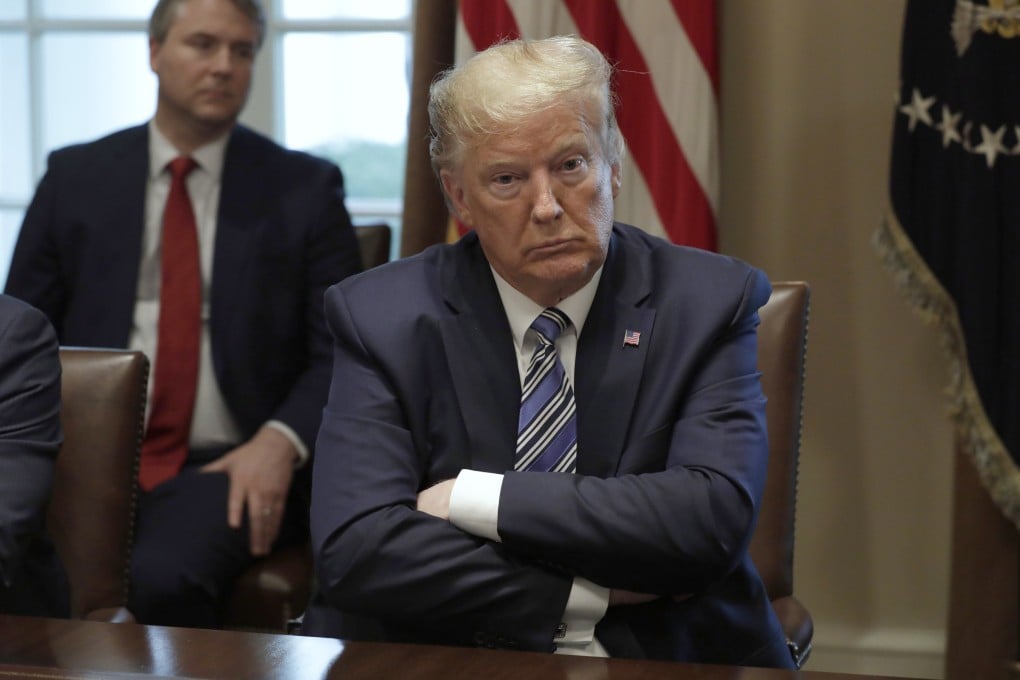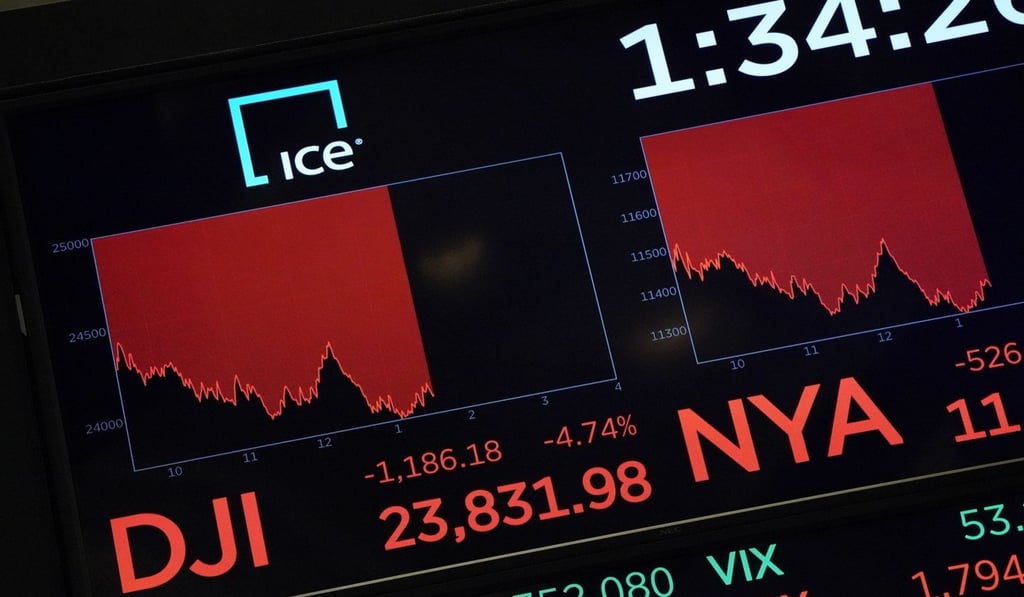Coronavirus and plunging stock markets in election year pose double-barrel threat unlike any Donald Trump has faced
- The US president’s political fortunes could depend on how he is seen as leader in a time of crisis, and the early reviews have not been good
- Traditionally, American leaders have helped build consensus and devise a coordinated approach to global crises, but that could be difficult for Trump

The rapid onslaught of the coronavirus, financial market panic and the crash of global energy prices is setting up Donald Trump for one of the biggest challenges of his presidency, say analysts and former US government officials.
Unlike other tests he has faced since he took office in January 2017 – including the trade war with China, his aggressive immigration policies and the killing of Iranian general Qassem Soleimani – the latest events are external shocks that he did not engineer. That, they say, could challenge his usual ability to shape the narrative.
The current blows are also hitting Americans where they live, they add, and could test the limits of Trump’s unique governing style as he works to stave off a possible US and global recession in an election year.
“The outlook for a recession is very, very high,” said Jacob Kirkegaard, senior fellow at the Peterson Institute for International Economics. “And US presidents tend not be re-elected in recession years or when unemployment declines significantly, even from a high level.”

That said, experts acknowledge that any assessment depends heavily on how hard and fast the pandemic hits and how quickly economic and political confidence is restored.
Clearly, the administration’s challenges are rising. The US stock market suffered its largest drop since the 2008 financial crisis on Monday and has yo-yoed since then, and officially entered bear-market territory with a drop of nearly 6 per cent on Wednesday. Russia and Saudi Arabia started an oil price war that threatens to bankrupt US energy companies and hammer American banks. US consumer spending, the largest driver of the US economy, is highly vulnerable to a lengthy corona outbreak. And also on Wednesday, the World Health Organisation declared the coronavirus outbreak a global pandemic.